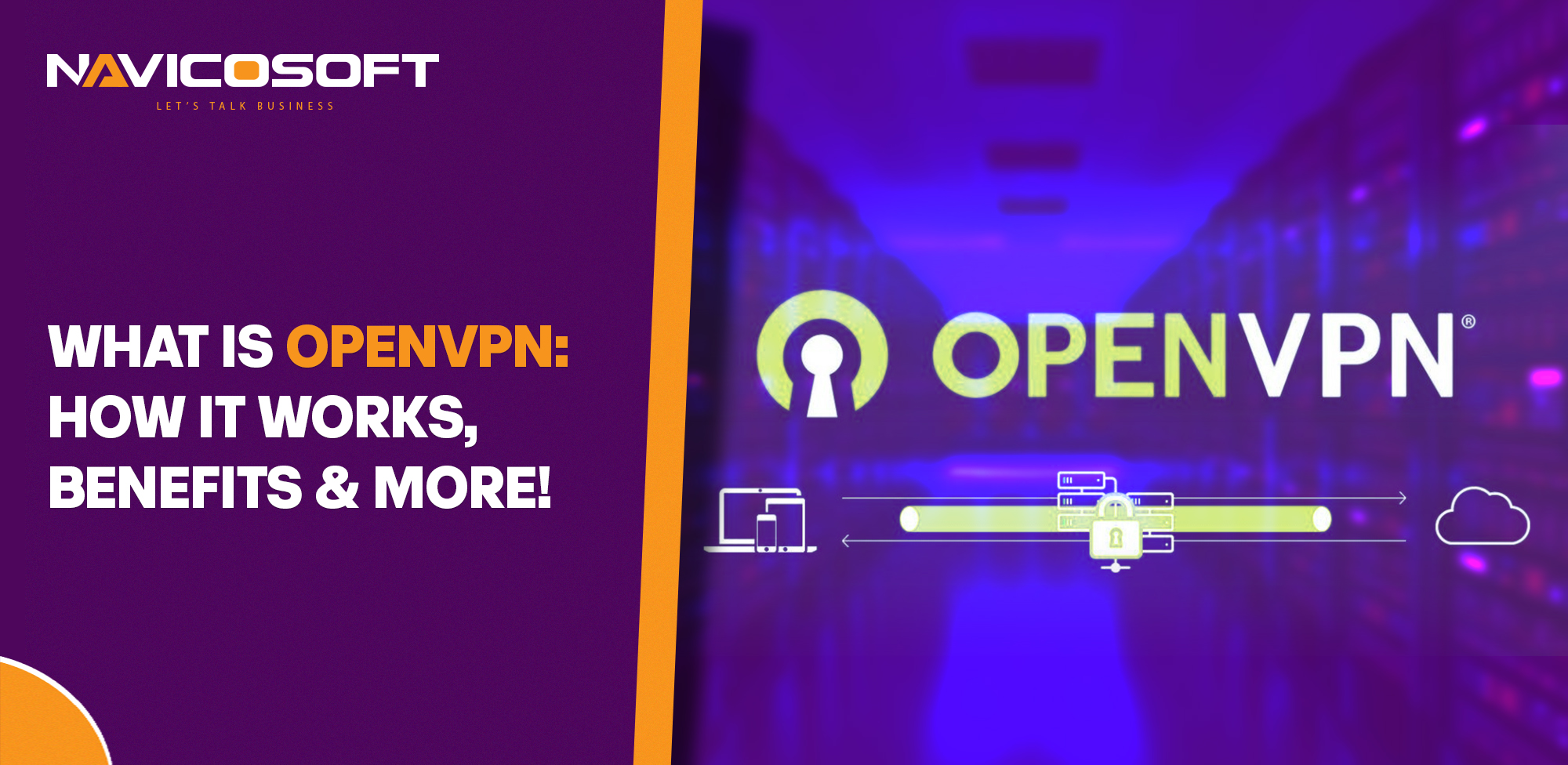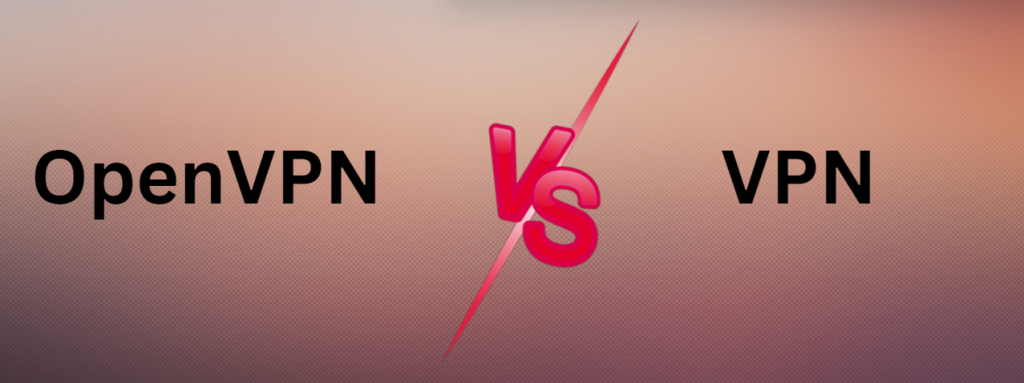Hosting services with real-time fast performance?

What is OpenVPN: How it Works, Benefits & More
If you worry about online privacy, you might already use a VPN. These tools hide your internet activity from hackers. Every VPN works with a set of rules called a protocol. This tells the app how to connect to the VPN server, move data around, and finish up. Different protocols like WireGuard and IKEv2 exist, but OpenVPN is the most popular. It’s famous for keeping your online info safe by putting it in a secret code. OpenVPN is also fast and good at getting through tough internet rules. This blog will explain everything about OpenVPN: how it works, what it does, and why people like it.
Major Highlights
- OpenVPN, or Open Virtual Private Network, keeps your internet activities safe by sending data securely.
- It makes secret tunnels to protect what you do online from people who shouldn’t see it.
- OpenVPN lets you use different ways to prove your identity, like usernames and special codes.
- OpenVPN uses SSL/TLS to set up secure tunnels to ensure data stays safe.
- It uses special codes to keep your info hidden and safe from hackers.
- OpenVPN can trick firewalls by making VPN traffic look like normal internet traffic.
- Setting up OpenVPN requires someone who knows tech because it can be tricky.
- Even though it might be a bit slower sometimes, OpenVPN is still a good choice for keeping things safe on different devices.
- People like OpenVPN because anyone can look at its code and improve it, so it gets lots of help from the community.
What Exactly is OpenVPN?
OpenVPN, or Open Virtual Private Network, is a top VPN protocol choice that was created in 2001. Because it’s open-source, anyone can see and change its code. This has led to a group of programmers and users working together to test, update, and improve OpenVPN constantly.
Like other VPNs, OpenVPN protects your online data by sending it through secure virtual tunnels. Think of these tunnels as secret passageways that keep your information safe. Different protocols create these tunnels in special and complex ways, ensuring no one can access your private info.When data goes through these tunnels, it gets wrapped in extra layers of information to keep it secure. Then, OpenVPN encrypts the data, turning it into a special code that only the right destination can read.
How OpenVPN Works
OpenVPN builds a safe tunnel for data to travel between the VPN client and server. It checks if the client and server are authorized, sets up the tunnel for data, wraps data securely, encrypts it, and sends it. OpenVPN can use various ways to confirm identities and lock data, protecting TCP and UDP traffic. Its adaptability makes it a popular and safe pick for many VPN setups.

User Verification
OpenVPN uses different ways to check who’s using the VPN and if they’re allowed. It uses usernames, digital certificates, and public keys to ensure security.
Setting Up Tunnel
Once OpenVPN checks who you are, it creates a safe path (called a tunnel) between your device and the VPN Server. It mainly uses SSL/TLS, which are safe ways to connect, but sometimes other methods can be used too.
Adding Layers of Security
OpenVPN puts data packets into extra layers to include routing info and show where the data is going and coming from. It also adds security like encryption. OpenVPN can be set up in many ways – you can choose different ways to scramble data and the length of time the key is. This stops others from seeing your data, like your boss, internet company, hackers, or people wanting to sell things.
Sending Encrypted Data
Encrypted traffic travels through the VPN tunnel to the VPN Server. There, it gets decoded and then sent to its final destination. Since it goes through an intermediary server, the destination doesn’t know the original IP address – it only sees the VPN server’s IP address instead.
Components of OpenVPN
Here are the parts that make up OpenVPN and help keep user connections secure:
OpenVPN Server
OpenVPN servers are used to connect different networks in site-to-site setups. They also link together to let VPN users securely access resources.
OpenVPN Client
This is the software you install to set up OpenVPN on your device.
OpenVPN Configuration Files
These files have the settings needed to connect clients and servers. Third-party VPN services often use them for setting up OpenVPN on routers.
Certificate Authority (CA)
Certificate Authority (CA) is the main authentication file used to authenticate other certificates and keys when connecting VPN clients to a server.
Public Key Infrastructure (PKI)
This is a collection of keys, both public and private, along with the certificate authority used to verify any requests to connect between clients and servers.

Benefits of OpenVPN
Gets Around Firewalls Easily
OpenVPN is great because it can easily go through firewalls, especially when set to Port TCP 443. This makes it look like normal internet traffic, so it can work even where there are limits.
Highly Customizable
You can change OpenVPN to make it safer and fit what you need. It gets updated a lot by people who work on it and use it, adding new things.
Regularly Updated
OpenVPN gets new updates because many people working on it and running the company are always improving. They keep adding new and cool things to make it work even better.
Fast Enough
While it’s not the fastest, it works quickly enough for most people because it’s strong at keeping information safe.
Secure
It’s very safe itself, using strong codes to protect your data on different devices like phones and computers.
Free to Use
You can use OpenVPN for free, and even the paid versions are usually not expensive.
Well-Supported by the Community
Many people who know much about technology use OpenVPN and make it better all the time, fixing problems and helping others use it.
Drawbacks of OpenVPN
Speed Changes
It might not always be as fast as other VPNs like WireGuard, depending on how it’s set up and how powerful your device is. You can try using UDP to make it faster.
Hard to Set Up
Setting up OpenVPN can be hard because it needs technical know-how and can take a lot of time. If you don’t set it up right, it could even weaken your online security.
Not on All Devices
OpenVPN isn’t already on all devices, so you must get a VPN Service.
Not All Servers Work
While most servers can use OpenVPN, some might need to work better with it. You should find other ways to connect, like using a proxy.
Mobile Problems
OpenVPN doesn’t always work perfectly on mobile devices like phones and tablets.
Could Get Blocked
Since OpenVPN is so popular, some systems might try to block it. Using OpenVPN with a VPN can help you get around these blocks and stay connected.

OpenVPN vs VPN: What’s the Difference?
A VPN keeps you safe online by hiding your IP address and keeping your data secret. This means no one can see what you’re doing, who you are, or where you are. If you want more privacy and security online, a VPN is really useful. OpenVPN is one type of VPN that many people use. Anyone can use OpenVPN software to make their own VPN connection. Most VPN services already have OpenVPN in their apps. However, these services can also be used in other ways to keep you safe, like WireGuard® and IKEv2/IPsec.
Is OpenVPN Secure?
Yes, OpenVPN is one of the safest VPNs you can use. It uses SSL/TLS to keep your data safe and can be made even more secure with the OpenSSL library. OpenVPN also has something called perfect forward secrecy, which means that even if someone tries to get in, they can’t see everything. It works with both TCP and UDP, so you can pick whichever is best for your security or how fast you want it to be.
Because OpenVPN is open-source, anyone can look at its code to find and fix problems. This helps make it safer but also means hackers might find ways to break in. OpenVPN has lots of ways to keep your info safe, but it’s really important to set it upright and pick a good VPN service to make sure you’re as safe as possible.
Bottom Line
In conclusion, OpenVPN is a great choice for VPN because it’s safe and open-source. It keeps your online data safe by sending it through protected tunnels. These tunnels use special methods to hide your information.OpenVPN creates a safe data transfer between your device and the VPN server. It checks who you are, sets up safe tunnels, wraps data securely, encrypts, and sends it.
That’s why many people choose it for their VPN. Using OpenVPN is smart if you want more privacy and security online. It’s popular because it’s safe and works on almost all devices, like iPhones, Windows computers, and routers. We hope this guide explains how OpenVPN works, its parts, and why it’s good for protecting what you do online.
FAQs
Q1: Is OpenVPN free?
Ans: Yes, OpenVPN is free because it’s open-source. This means anyone who knows tech stuff can change and use it. For instance, you could use the OpenVPN code to turn your old computer into a VPN server for free.
Q2: Is OpenVPN good?
Ans: Yes, OpenVPN is very safe to use. Many people like it because it’s secure and works with almost all types of computers.
Q3: Is OpenVPN server secure?
Ans: The OpenVPN Access Server’s web server uses HTTPS SSL encryption. This keeps your connection safe when you use it. It means no one can easily see your login details while using it.














